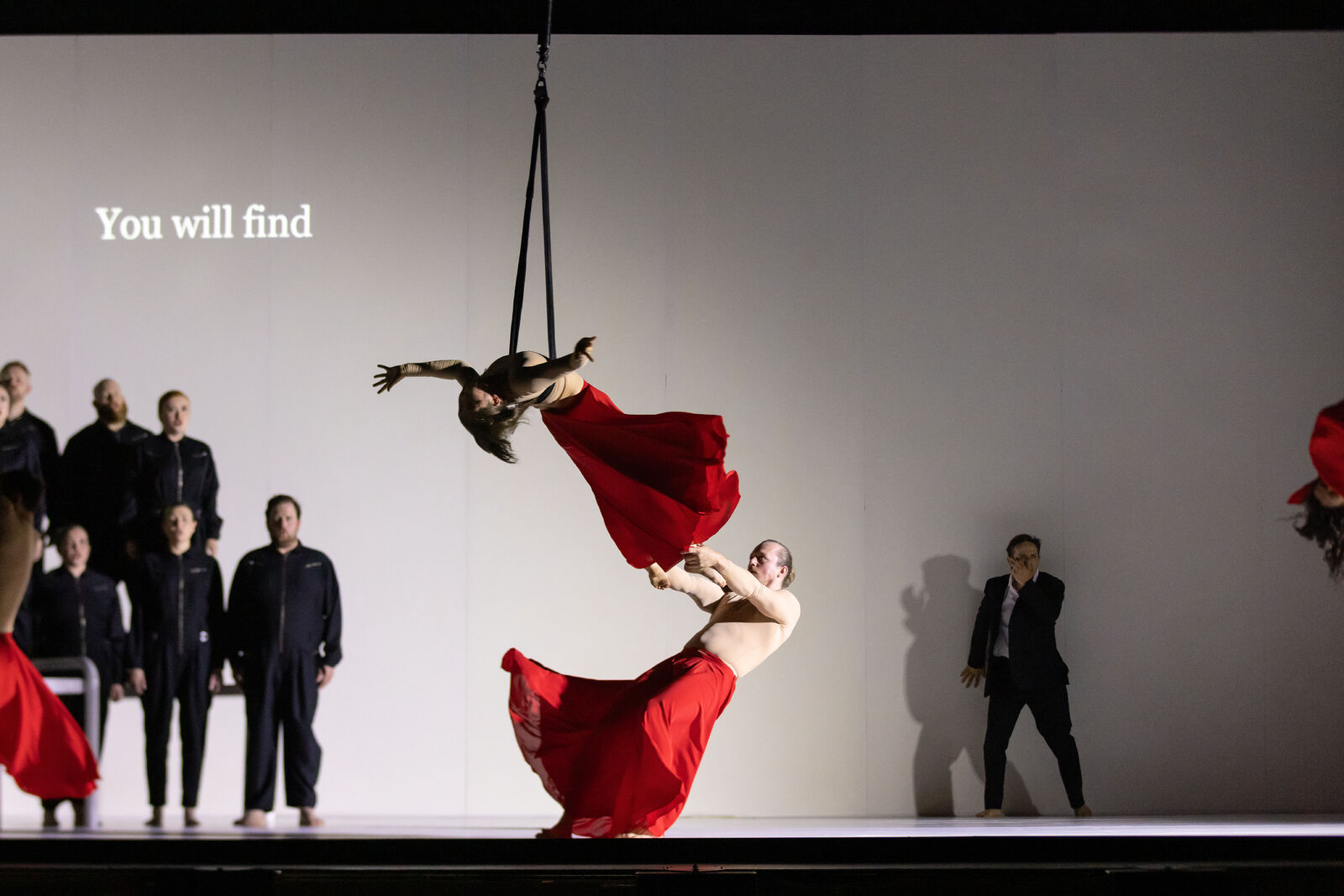As the curtain rises on Opera Queensland’s production of Orpheus and Eurydice to reveal an aerialist suspended above the stage, you know this won’t be your typical opera. Slowly, she is lowered to the stage as she forms shapes in her harness, symbolising Eurydice’s descent into the underworld. The stage widens, revealing a funeral march in her honour while Orpheus struggles against his bindings in a hospital bed as acrobats crawl and contort over him, evoking classical images of nightmares.
This blend of classical opera with circus for a retelling of Orpheus’ journey to the underworld to reunite with his lost love makes for a mesmerising spectacle that ultimately leaves the audience astounded and eager for more.
From the jump, we are left to question what is real. Is this an extended delusion of Orpheus’ disturbed mind, or is he truly quelling the Furies and spirits of the dead in Hades? The incredible physicality and gravity-defying skills of Brisbane-based circus troupe, Circa, only further this question.
When Christoph Willibald Gluck first wrote this reformation opera, he aimed for simplicity. Gone were the abstruse plots and complex musical beats in favour of noble simplicity as the two central figures yearn for one another. In many ways, this production continues that tradition. Yaron Lifschitz’s stage is framed by stark, white asylum walls while Libby McDonnell dresses the Scottish Opera chorus in black jumpsuits, at once the typical garb one would expect but tweaked to reflect the setting.
The complexities instead come from Circa’s acrobatic and aerial antics. A fixture of the international festival scene, including the Edinburgh Fringe, they astound the audience and ignite gasps and rapturous applause throughout as they form human pyramids and three-high towers. There’s an initial fear that the acrobatics threaten to outshine the musicality, but Circa allows the more dramatic moments to stand alone by resigning themselves to the background to subtly complement the singing.
The score from the Scottish Chamber Orchestra is magnificently delivered under conductor Laurence Cummings. Countertenor Iestyn Davies delivers a haunting portrayal of Orpheus, wonderfully capturing his emotional journey – the overwhelming grief at his loss, the conflicted elation at their reunion, and the unhinged delusion of the finale. Likewise, Australian-British soprano Samantha Clarke excels in the dual roles of Eurydice and Amor. While her time on stage is limited, she balances playful flirtation as the spirit of love with Eurydice’s yearning and heartbreak at her perceived rejection wonderfully.
This is a visually striking and awe-inducing reimagining of a timeless tale that highlights the bold risks Edinburgh International Festival is all about. The marrying of two distinct art forms ensnares the audience and drives them to their feet as they are left with the harrowing image of Orpheus hung upside down from his ankles.
This is more than a triumph of love, as the painted wall at the end proclaims. It’s a triumph of theatre, and a triumph for EIF.


Comments